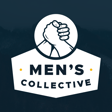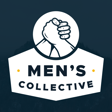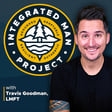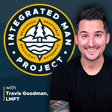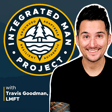
The Science of Self and Identity: Exploring IntraConnected with Dr. Dan Siegel
In this episode of The Therapy4Dads Podcast, we are joined by the renowned Dr. Dan Siegel as he discusses his book "IntraConnected." We delve into the profound concepts of intraconnection and self-identity with Dr. Siegel, exploring the impact of these ideas on parenting, relationships, and global well-being. We discuss the practical applications of understanding the self as more than just an individual body and how this perspective can shape our interactions with others and the world around us. Dr. Siegel also shares insights on the transformative "Wheel of Awareness" practice, shedding light on its potential to foster well-being and resilience. For a fresh perspective on connection, identity, and mental health, tune in to this enlightening episode.
🔑 Key Takeaways from the Episode:
1. The Self: Dr. Siegel discusses the concept of self in terms of individual body, relationships with others, and the interconnectedness with nature. Exploring these interconnected layers of identity can lead to more fulfilling and meaningful connections in our lives.
2. The Wheel of Awareness Practice: Dr. Siegel introduces this practical daily practice, aimed at training attention, awareness, and intention. The practice has shown to have medical benefits by reducing inflammation and optimizing the repair of chromosomes, improving the physiology and resilience of the mind.
3. The Path Forward: Dr. Siegel emphasizes the need for a collective shift in our understanding of the self to promote compassionate connections, not just with others but also with nature. By recognizing and addressing the mistaken identity of the self as the individual body, we can strive for a healthier, happier, and more unified world.
Listen to the full episode for a deep dive into these transformative concepts and get ready to embrace a new perspective on interconnectedness and well-being!
WATCH ON YOUTUBE:
SUPPORT THE SHOW:
CLICK HERE: BuyMeACoffee/Therapy4Dads
JOIN the MAILING LIST & GET INVOLVED!
Connect and Support Dan:
Connect and Support Travis:
YouTube: Travis Goodman
Instagram: @Therapy4Dads
Check out the Website: Therapy4Dads.com


